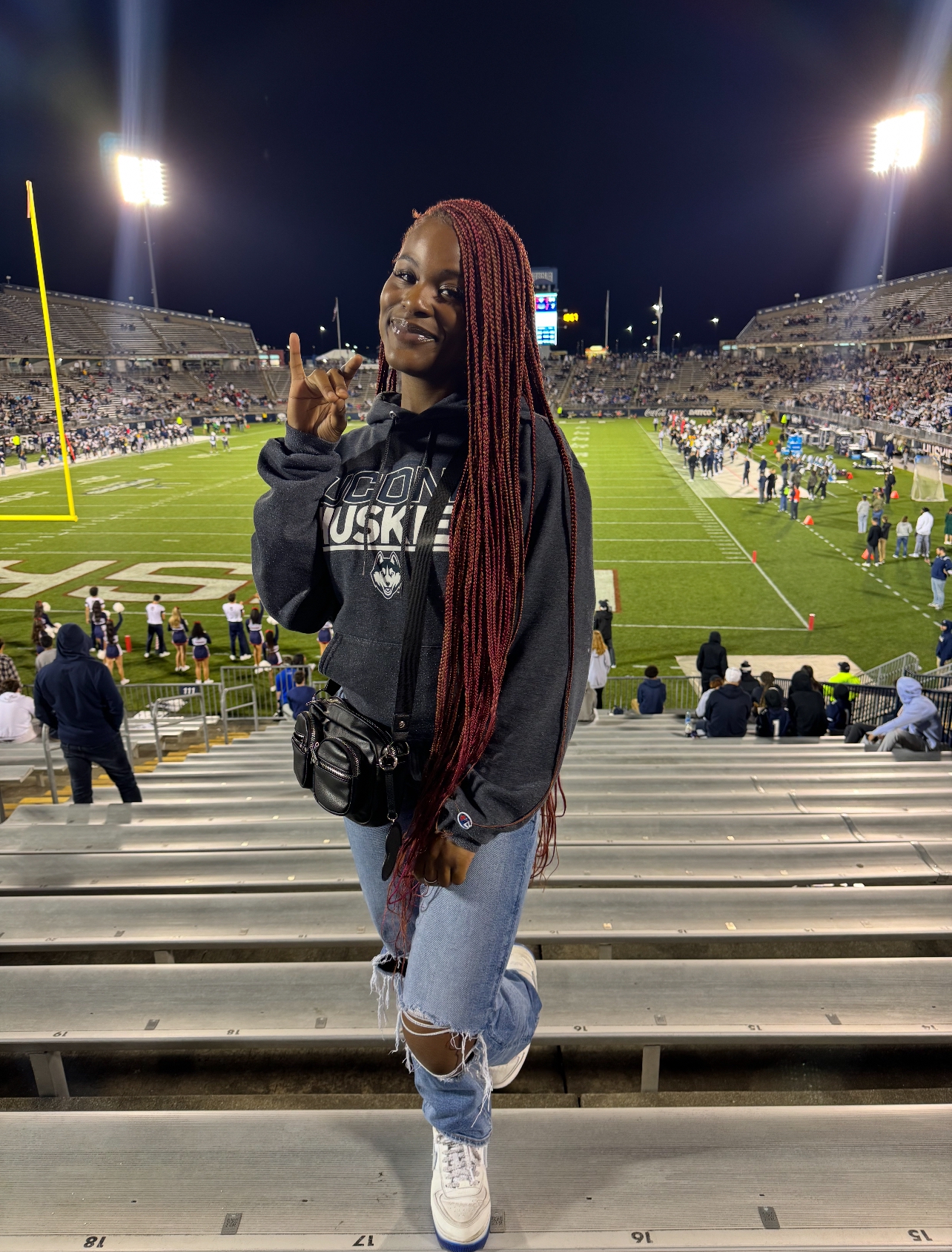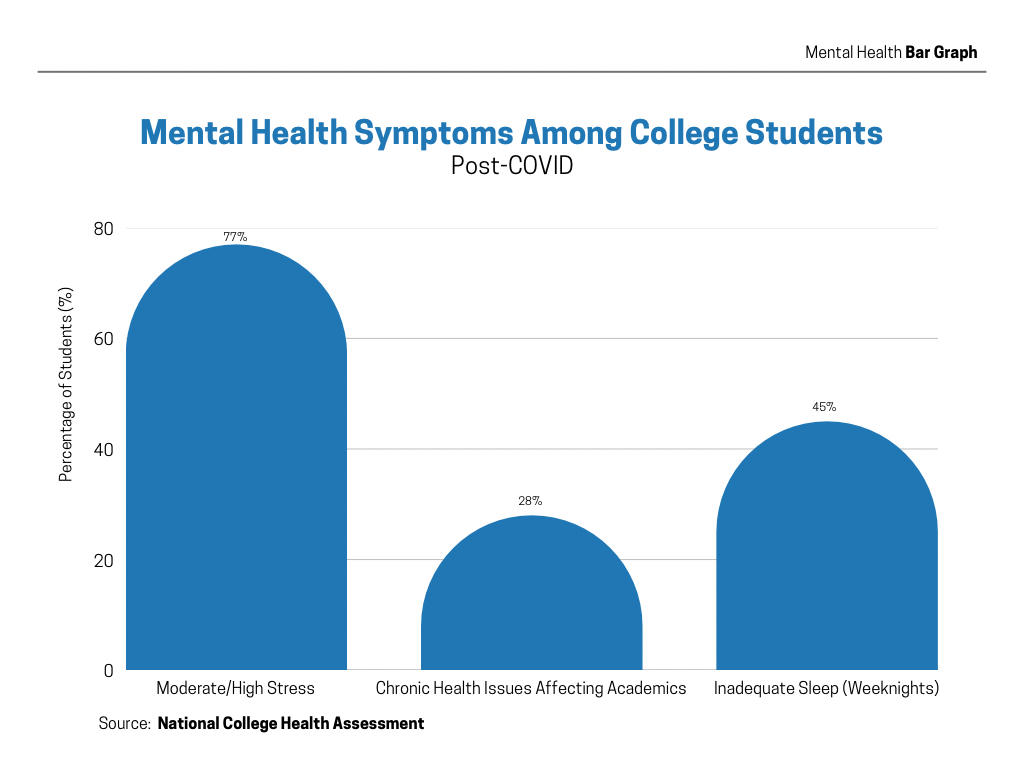By Earvin Adjei | UConn Journalism
May 27, 20025

Some college students still feel the effects of the COVID-19 pandemic, even five years after the world returned to normalcy. For students like Ivree Diaz, who began her college journey in 2020, the lingering impact of the pandemic has been profound, ranging from academic struggles to sharp swings in mental health.
“I was beat,” Diaz said, recalling the emotional toll of her first semester at the University of Connecticut.
By winter break, she had lost nearly 30 pounds, and her motivation had plummeted.
“During that time, I was on the fence about coming back,” she said. “But I told myself, let me just stick it out for the rest of the year.”
Despite her efforts, Diaz eventually left UConn, citing long-lasting mental health struggles and an awkward transition to college life that was compounded by the chaos of the pandemic.
“I used to be an honors student before COVID, but after everything shut down, all my motivation just disappeared,” she said.
Diaz never returned to UConn. Instead, she completed a massage therapy program, a career path she says helped her reconnect with people and find a sense of peace after such a disorienting chapter in her life.
Diaz’s experience is far from unique. A 2024 report from the Student Experience in the Research University (SERU) Consortium revealed that the pandemic’s toll on student engagement continues to reverberate across campuses nationwide. Only 44% of students reported a strong sense of belonging on campus, down from 55% the previous year. Mental health challenges and weakened social ties, which began during remote learning, remain among the key contributors to this decline.
Dr. Melissa Bray, a professor and director of the School Psychology program at UConn’s Neag School of Education, said many students are struggling with mental health challenges in 2025.
“I feel that the aftermath has still led to anxiety and depression. COVID has changed how we communicate and interact,’’ Bray said. “UConn has met the challenge with expanded access to mental health supports through Student Health and Wellness and other related services.”
That struggle to reconnect with passion and purpose is familiar for students like Trenyce Taylor, a senior at UConn who entered college during the pandemic. She reflected on the challenges of rebuilding her academic focus after years of disrupted learning.
“I had to teach myself how to study again,” Taylor said. “My attention span is getting better now, but it’s been a process.”
The effects stretch beyond academics. Diaz, now several years removed from her college experience, said the emotional impact of the pandemic still lingers.
“It killed the school morale,” she said. “Made me not want to do anything. I just didn’t care anymore.”
These personal stories mirror national trends. A 2024 Student Voice survey found that nearly one-third of college students reported no involvement in extracurricular activities. For community college students, the rate was even higher.
Work obligations and time conflicts were among the most commonly cited barriers. Among those working more than 30 hours per week, 32% said their work schedules interfered with their ability to participate in campus life.
Meanwhile researchers at the University of California Berkeley found declines in student participation across a range of areas—from research and academics to civic engagement and career preparation. The study warned that these ongoing challenges could have long-term implications for workforce readiness and innovation.
Sidney Taffe, another senior at UConn, spent her first year of college entirely online. The disconnect she felt has proven difficult to overcome.
“It was very difficult,” Taffe said. “It felt lonely. I didn’t feel like I was really in college—I was just doing this thing in my room.”
Taffe noted that when her class finally arrived on campus as sophomores, it was hard for students to connect.
“We didn’t get the bonding experience,” she said. “It was like we skipped the ‘getting to know each other’ part.”

These stories underline a troubling reality: for many students, the pandemic wasn’t just a temporary disruption—it was a pivotal moment that altered their relationship with education, their peers, and themselves.
Despite setbacks, Bray remains optimistic that students can adapt and recover.
“The passion, the drive, the vitality are still present,” she said. “We just need to help students find new ways to tap into it.”
